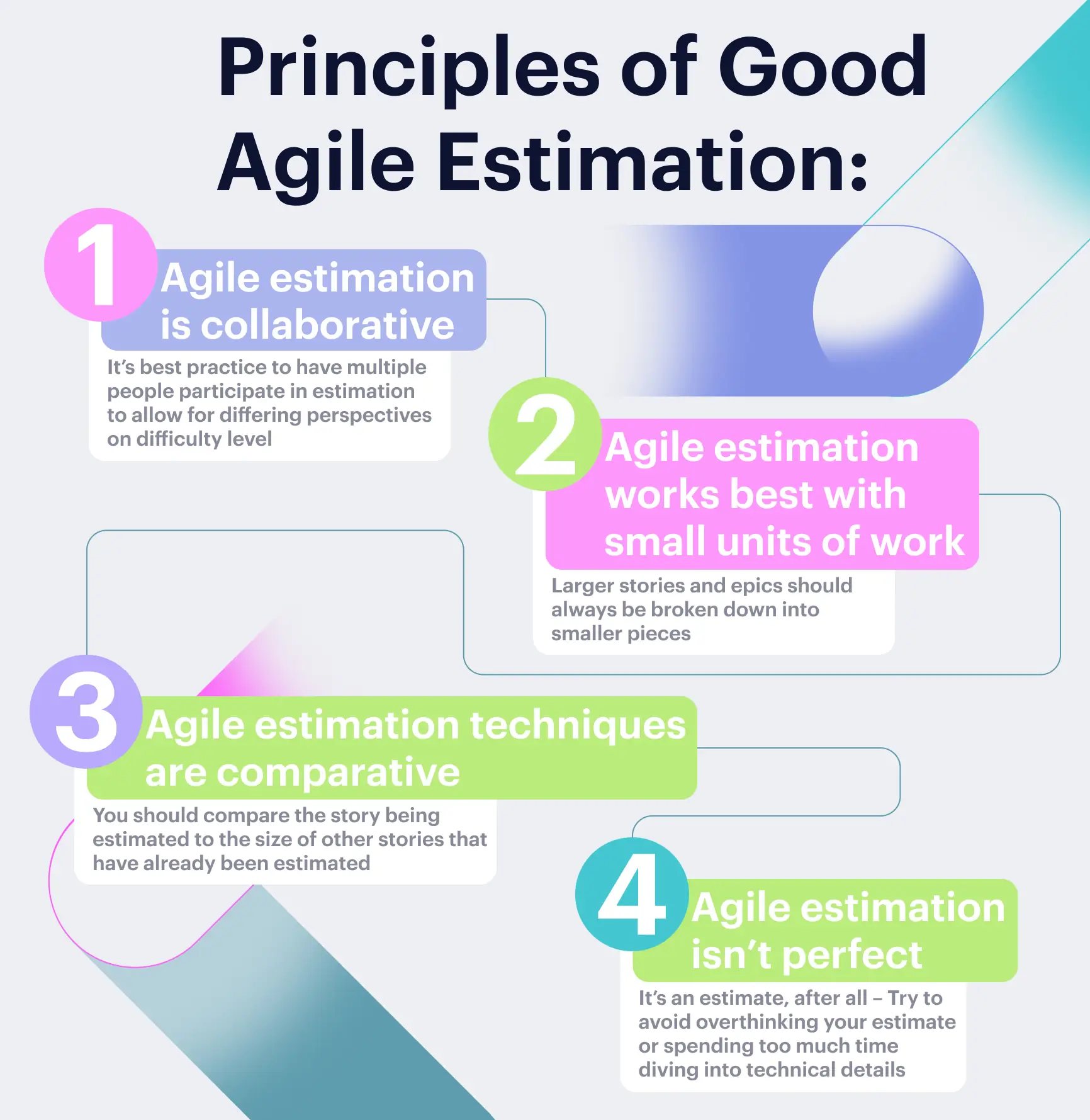Agile Estimation Techniques: Planning with Precision
In the agile world, effective estimation is the compass that guides teams through the dynamic landscape of project planning. This exploration delves into various agile estimation techniques—tools that empower teams to plan with precision, align expectations, and make informed decisions. From story points to planning poker, we'll unravel the intricacies of agile estimation, providing insights into selecting the right technique for the task at hand.
1. Understanding the Principles of Agile Estimation
Agile estimation is rooted in principles that prioritize collaboration, relative sizing, and adapting to change. We'll explore the foundational principles that underpin agile estimation, setting the stage for a collaborative and iterative approach to planning.
2. Story Points: A Relative Sizing Paradigm
Story points serve as a versatile and widely used unit of measurement in agile estimation. We'll discuss how story points provide a relative sizing paradigm, enabling teams to assess the complexity and effort of user stories in relation to each other. This approach fosters a more nuanced and flexible estimation process.
3. Planning Poker: Harnessing Collective Wisdom
Planning poker is a popular "What is Agile" estimation technique that leverages the collective wisdom of the team. We'll delve into how teams use planning poker to assign story points collaboratively, encouraging open discussion, and ensuring that diverse perspectives contribute to the estimation process.
4. Fibonacci Sequence: Adding Nuance to Estimation
The Fibonacci sequence, often used in story point assignments, adds nuance to the estimation process. We'll explore how this sequence reflects the uncertainty inherent in estimating larger and more complex tasks, facilitating a more realistic and risk-aware approach to project planning.
5. T-Shirt Sizing: Simplifying Complexity
T-shirt sizing provides a simplified and intuitive approach to estimation. We'll discuss how teams use this technique to categorize user stories into sizes such as Small, Medium, Large, and Extra-Large, simplifying the estimation process and fostering quick and high-level planning.
6. Ideal Days: Balancing Precision and Simplicity
Ideal days offer a straightforward approach to estimation by assigning a time-based value to user stories. We'll explore how this technique balances precision with simplicity, providing a clear representation of the effort involved while maintaining a focus on the relative sizing principles of agile estimation.
7. Affinity Estimation: Clustering for Cohesive Planning
Affinity estimation involves clustering user stories based on their perceived size and complexity. We'll discuss how teams use this technique to group similar tasks, making the estimation process more manageable and allowing for a cohesive and strategic approach to planning.
8. Bucket System: Streamlining Complexity
The bucket system streamlines the agile estimation process by categorizing user stories into buckets representing different levels of effort or complexity. We'll explore how this technique simplifies the decision-making process and supports quick and efficient estimation.
9. Reference Story: Anchoring Estimations
A reference story serves as a benchmark for agile estimation, anchoring the team's understanding of effort and complexity. We'll discuss how teams use a reference story to calibrate their estimation scale, ensuring consistency and accuracy in the estimation process.
10. Overcoming Estimation Challenges: Practical Solutions
Agile estimation is not without its challenges. We'll address common pitfalls and provide practical solutions for overcoming estimation challenges, including dealing with unknowns, managing diverse team perspectives, and refining the estimation process for continuous improvement.
Agile estimation is a dynamic and iterative process that aligns teams, facilitates effective planning, and adapts to the evolving nature of projects. Whether you're a Scrum Master, Product Owner, or team member, this guide promises valuable insights into the world of agile estimation techniques, empowering you to plan with precision and navigate the complexities of project management in the agile landscape.

Comments
Post a Comment